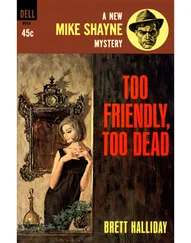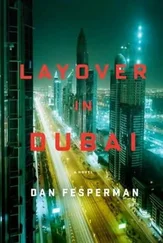Dan Fesperman - Lie in the Dark
Здесь есть возможность читать онлайн «Dan Fesperman - Lie in the Dark» весь текст электронной книги совершенно бесплатно (целиком полную версию без сокращений). В некоторых случаях можно слушать аудио, скачать через торрент в формате fb2 и присутствует краткое содержание. Жанр: Триллер, на английском языке. Описание произведения, (предисловие) а так же отзывы посетителей доступны на портале библиотеки ЛибКат.
- Название:Lie in the Dark
- Автор:
- Жанр:
- Год:неизвестен
- ISBN:нет данных
- Рейтинг книги:3 / 5. Голосов: 1
-
Избранное:Добавить в избранное
- Отзывы:
-
Ваша оценка:
- 60
- 1
- 2
- 3
- 4
- 5
Lie in the Dark: краткое содержание, описание и аннотация
Предлагаем к чтению аннотацию, описание, краткое содержание или предисловие (зависит от того, что написал сам автор книги «Lie in the Dark»). Если вы не нашли необходимую информацию о книге — напишите в комментариях, мы постараемся отыскать её.
Lie in the Dark — читать онлайн бесплатно полную книгу (весь текст) целиком
Ниже представлен текст книги, разбитый по страницам. Система сохранения места последней прочитанной страницы, позволяет с удобством читать онлайн бесплатно книгу «Lie in the Dark», без необходимости каждый раз заново искать на чём Вы остановились. Поставьте закладку, и сможете в любой момент перейти на страницу, на которой закончили чтение.
Интервал:
Закладка:
Vlado didn’t gloat, didn’t act as if the dynamic had shifted in the least.
“Let’s start with the files. You staged the explosion and the fire at the museum and then stole them, correct?”
“Yes.”
To Vlado’s wonderment, Neven then said that the covering artillery barrage had been arranged on their behalf by General Markovic.
“And this was when Zarko joined the operation?”
“It was his first starring role, you might say. Markovic had brought us into it a few days earlier.”
“How did he make the arrangements? There was the slight inconvenience of a war going on at the time, and like you said, Zarko was making Markovic’s army look pretty bad.”
“If they could have wiped us out, they would have. Markovic as readily as anybody. But by then it was clear they weren’t going to be able to take the bridges, and they weren’t going to get to the museum. Once he realized that, he arranged a meeting.”
“How?”
“It was easy enough. You asked for ceasefire negotiations at unit level. That’s always the best way to get the blue helmets moving on your behalf to establish an official contact with the other side. So one morning we all got together, Markovic and two of his officers and Zarko, myself and another of ours, along with two of the European Community monitors, those guys in the white uniforms, the ones who look like ice cream men. They always believe that the more they can keep us talking the closer we’ll be to peace.”
“You could hardly seem to discuss smuggling arrangements under those conditions.”
“We didn’t, at first. We talked prisoner exchanges, artillery monitoring, sniper moratoriums. All the things neither side had any intention of doing, because no matter how much money we might want to make together, at the bottom of it we still hated them and they hated us. When it came time for the real business Markovic told the E.C. monitors that he and Zarko needed a few moments of privacy, for greater frankness and candor. They gave it to him, of course. So then we set it all up, sitting in a white U.N. APC, right down by the river.”
“And that’s where Markovic laid it out for you, and offered to cut you in if you’d help.”
“He told Zarko he wanted the pieces of art from our side of the river. He said that’s where the better items were. Said he could handle transportation out of the country if we could get them over the bridge. But first he wanted us to take care of the transfer files. He already has his own copy from somewhere else.”
The Belgrade copy, Vlado figured. If a friend of Vlado’s could get a copy, Markovic certainly would have had no problem.
“He wanted the copy in the museum destroyed,” Neven said. “He gave us a date and said he could provide covering fire. Zarko told him fine as long as he didn’t actually hit the building while we were in it. We had a few laughs, a few smokes, a shot of brandy, then we left. The E.C. guys seemed disappointed when we told him we’d accomplished nothing.”
“So. You were to take charge of the museum and find a way to destroy the records. But you kept them instead, didn’t you. Then staged a destruction.”
“Zarko wasn’t a fool. He figured with his own copy he could run the operation more easily, with more independence. He sold the idea to Markovic as a way of cutting down on logistics, simplifying it so we wouldn’t have to risk using couriers or cryptic shortwave messages every time Markovic had a painting he wanted us to pick up. I don’t think Markovic ever really got used to the idea, but he kept getting his cut so he lived with it.”
“But first you had to get yourself established at the museum. Move in on the place as its ‘protectors.’ Which I suppose was pretty easy with Murovic running the place.”
“He was in love with us. And I mean that literally. Always swooning over the manly fighters in his lobby, bringing us coffee and cakes. I liked to think that he fancied me in particular.” Neven laughed. “To him we were beyond reproach. We had come to save his fabulous galleries, and in doing so we had saved his job. We were his noble savages, who’d even more nobly resisted the urge to plunder. Zarko was always very strict about that. There was to be no looting of the museum, of even the smallest object, and those were some of the best.”
“Because he wanted the files. And after you had them, then what?”
“From then on only two of us were involved besides Zarko. Alijah Nerevic and me. Alijah was killed on the first day of the police raid in October, standing outside like a fool, thinking it was only the Chetniks shelling while the rest of us ran for cover.”
“Only two of you besides Zarko?”
“It was as many as he could trust. He’d go through the files, find a card he liked, one with a higher value, then send us out to make the pickup.”
“Just like that? A couple of thugs walking into someone’s home to take a painting off their wall?”
“It was easier than you’d think. While we were at the museum we helped ourselves to some of Murovic’s stationery, so we forged his signature on official permissions for ‘protective custody,’ then paid each person a hundred marks for their cooperation and inconvenience. It’s amazing how quickly people take the hint. Even if they were suspicious, once you paid them they didn’t dare ask any questions of the museum or any other authority. Why risk losing their precious D-marks? Especially when it hadn’t really been their painting to begin with.
“But what was funnier was that some people had already figured out the profit possibilities for themselves. At about every fifth stop both the painting and the people who’d been living there were gone. A few others had already crated it and put in a basement or a closet. They’d go all red in the face and say they’d been doing it for safekeeping. Only one man ever tried to make a stink about us. Yelled at us and threatened to go the police.”
“And?”
“We took him down to the river and shot him through the head. The next morning the morgue collected him. It was a busy day and they wrote him off as a sniper hit.”
“A familiar technique. That’s how Vitas got it.”
Neven didn’t seem the least bit surprised.
“Then you just walked through the streets with a painting?” Vlado asked.
“We crated it on the spot. Always took boards, nails and a drop cloth with us. Loaded the crate on a truck, then waited until after dark to make the drop.”
“Where.”
“For a while at a place by the river, near a checkpoint crossing where supplies came in through a back channel. There were intermediaries cleared for action on both sides who brought in tobacco, meat, liquor. Dangerous work, but they made a lot of money while they lived, and both sides used them for information. They’d take our crate across, or at least until the overhead began to get ridiculous.”
“The overhead?”
“Too many payoffs to too many people. Skimming and siphoning. The operation was leaking like a sieve, and because Markovic was sending everything out over the hills by truck there were more payoffs at every checkpoint, and even then sometimes the freight never reached its destination. So we simplified.”
“How.”
“How else. ‘Maybe Airlines.’ It’s what the U.N. soldiers call their daily flights because maybe they’ll fly, maybe they won’t. Guaranteed overnight delivery as long as the Serbs weren’t shooting or shelling the airport the next day. And sometimes Markovic could take care of that problem, but not always.”
“So you’d drop off the paintings where?”
“At the U.N.’s freight and shipping depot, near the PTT building on the way to the airport. Right behind U.N. Forces headquarters. Especially convenient because it was on our side of the line. We’d drive through the gates waving our U.N. shipping invoice and leave the crate on the rear loading dock, ready for delivery via the first flight out to Frankfurt in the morning.”
Читать дальшеИнтервал:
Закладка:
Похожие книги на «Lie in the Dark»
Представляем Вашему вниманию похожие книги на «Lie in the Dark» списком для выбора. Мы отобрали схожую по названию и смыслу литературу в надежде предоставить читателям больше вариантов отыскать новые, интересные, ещё непрочитанные произведения.
Обсуждение, отзывы о книге «Lie in the Dark» и просто собственные мнения читателей. Оставьте ваши комментарии, напишите, что Вы думаете о произведении, его смысле или главных героях. Укажите что конкретно понравилось, а что нет, и почему Вы так считаете.












